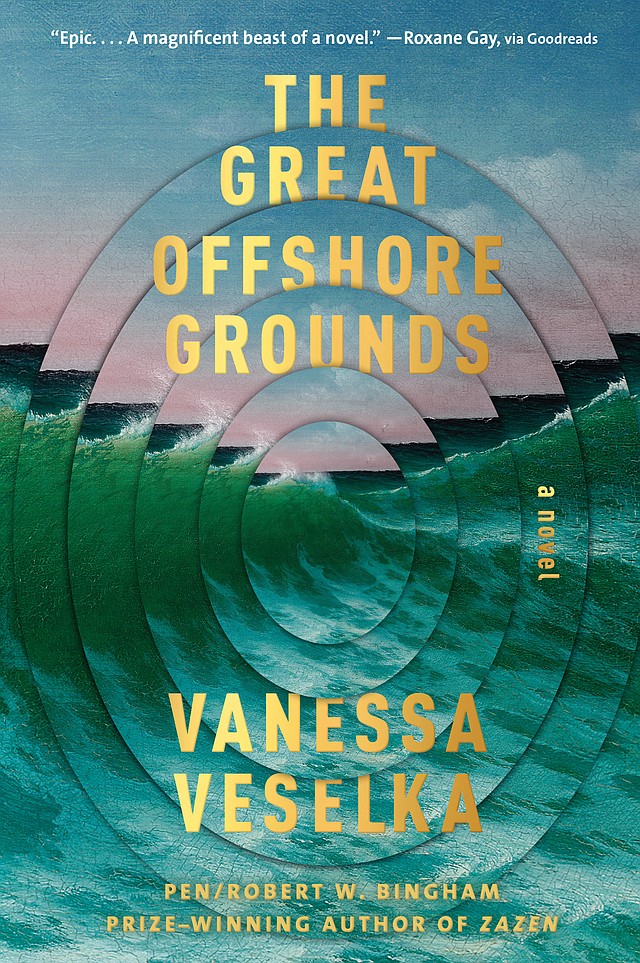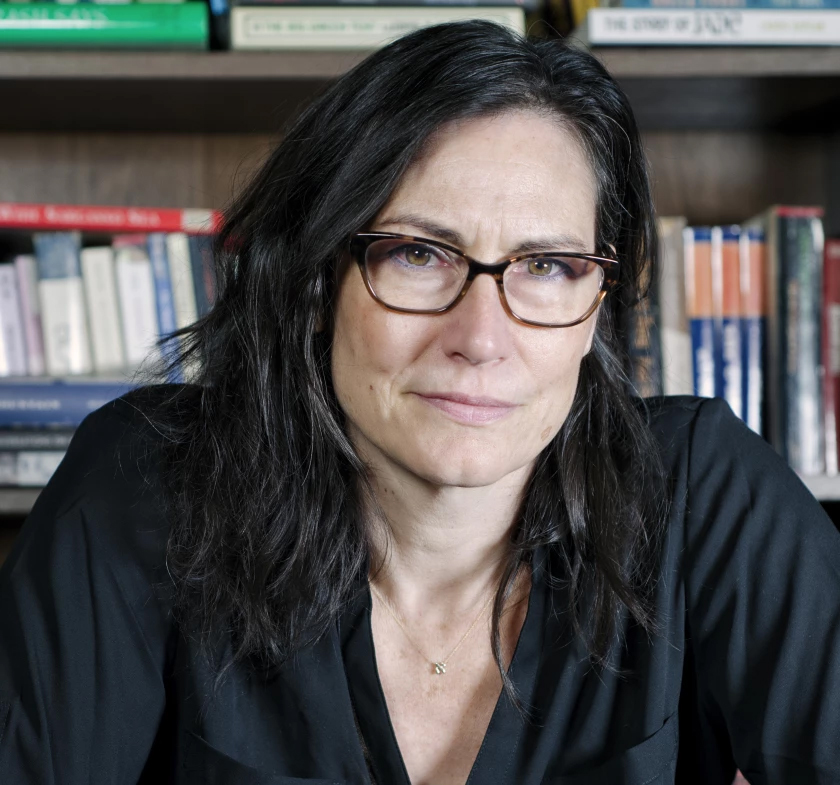You don’t find characters like those in Portland, Oregon-based author Vanessa Veselka’s “The Great Offshore Grounds” all that often. The family in this rampant, rather glorious, certainly important novel is not only very unlucky but poorly equipped to improve their circumstances.
Kirsten and her children (two adult daughters and a teenage son) are bent and buffeted by a culture with little use for their impulses and oddities, doom-struck tendencies and self-damaging habits. What can be done about these people? They have no money, and they’re hard to deal with. So here’s some dangerous labor, here’s the military, yonder stands the menial world of handouts. Here’s a rape, here’s a series of beater cars, here’s a tornado, here’s a deadbeat father.
It’s an isolating world, meaning Kirsten and her children are often on their own, caroming around the country following money, jobs, dignity. And they do themselves few favors. Their discipline fails them at crucial moments, so they become kamikaze bombers of their own good intentions. It is a lonely, scary life.
And yet. A beautiful world is being described. Much of the book takes place in Seattle and environs, as well as Alaska, but it is not the Seattle one usually sees in literature. The city here is a forbidding place, but with tiny wonders gleaming in the neglected crevices: the midnight allure of Gas Works Park, for example. When the book travels elsewhere, it finds other wonders along the way. A weird, tiny castle in Texas. A mystically alluring yurt in a Carolina swamp. An oil rig looming out of the night, seeming to be at once sinking and floating.
 The book is about the time in which it is composed. It is about being a poor woman, now, in our state and our region. It is also a lament for the direness of the late capitalist world. (Photo courtesy of Penguin Random House)
The book is about the time in which it is composed. It is about being a poor woman, now, in our state and our region. It is also a lament for the direness of the late capitalist world. (Photo courtesy of Penguin Random House)
To the extent Kirsten and her children thrive, they do it in these odd, hidden, shining places. They choose from a limited menu of options. They make their way. They care for one another. Kirsten belongs to a coven, actually just a group of poor women struggling together to survive. Her daughters Cheyenne and Livy are both entangled in a family mystery — is one of them in fact another woman’s child?
Livy is not so interested in her parentage. She is hard, a realist, the one most likely to pay the rent on a grotty basement apartment, the one who takes a job scraping boat hulls in Juneau. Cheyenne is softer, more driven to know who birthed her, less likely to be successful in her quest, more likely to accept love and meaning along the way. Their little brother, Essex, unofficially adopted off the Ave in the University District at the age of 11, wants peace and harmony. He finds it in the Marines.
This novel is rich and deep, broad and strange. As is the case with Veselka’s previous novel “Zazen,” its syntax is often impelled, peculiar, sometimes cracked. Veselka belongs in a small category of novelists, largely women, who write about working-class and itinerant people in this kind of semi-shattered fashion, mirroring the broken world in a provisional, reconstructed language.
The nearest comparison might be Jaimy Gordon, National Book Award-winning author of “Lord of Misrule.” Veselka is more plotted, more accessible than Gordon. And this book belongs in another category: the Pacific Northwestern novel of social action, along with Robert Newman’s novel of the Seattle WTO protests, “The Fountain at the Centre of the World” or, more recently, David Shafer’s hilarious political thriller “Whiskey Tango Foxtrot,” set largely in Portland.
Thriller, yes, because “The Great Offshore Grounds” is in fact a page-turner. Questions drive the action: will Cheyenne find the elusive Justine, possibly her mother? Will Livy survive fishing in Bristol Bay in a boat literally sawn to pieces and taped together again? Will Essex be punished for the crime he commits — and if so, what could he possibly do with himself afterward? Will any of them be properly reconciled with either of the crucial women in their lives before it’s too late?
And beyond this — like most important works that are likely to last — the book is about the time in which it is composed. It is about being a poor woman, now, in our state and our region. It is a lament for the direness of the late capitalist world generally, its thoughtless predation and global implacability. And it is about how a life, limited in place and time, can be seated within the context of all that has come before. Ghostly figures from American and world history drift through these pages, judging the players, preening and boasting.
Being inside a successful novel is like living, briefly, in someone else’s excellent brain. Books and brains work in both linear and associative ways simultaneously: plans are executed and completed, tasks are accomplished, while all along a strange tune goes running under things, a secret voice singing in the ear. Veselka’s song is well worth hearing.




